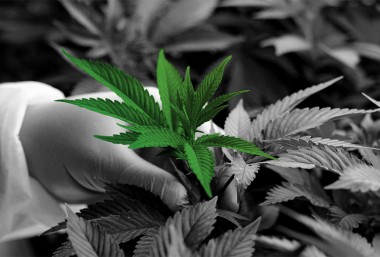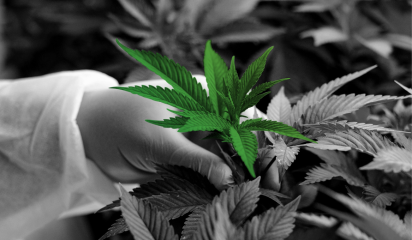Canada has recently legalised cannabis for both recreational and medical use. Many states in the US have done the same.
Over 35 countries, including Australia, United Kingdom, Germany, Italy, Greece, Netherlands, Norway, Poland, South Africa and Switzerland, now allow at least some form of cannabis use for medical purposes.
This changing landscape has led to a booming industry in medical and recreational cannabis, and along with it, an increase in the use of IP rights to protect individuals’ and companies’ interests in their cannabis products.
What is the current legal position in New Zealand?
Under the Misuse of Drugs Act 1975, the posession, use and supply of cannabis and cannabis products containing tetrahydrocannabinols and related psychoactive substances for recreational purposes remains a crime.
There are certain exceptions for prescribed medicinal cannabis drugs that have ministerial approval. Currently, the only drug to have ministerial approval is Sativex.
The Misuse of Drugs (Medicinal Cannabis) Amendment Act came into force on 18 December 2018. This Act provides the following:
-
People who require palliation have an exception and a statutory defence to the charge of possessing or using illicit cannabis, or a cannabis utensil - illicit cannabis means any cannabis product not prescribed by a doctor.
-
Quality standards are able to be set for medicinal cannabis products and all stages of production (a Medicinal Cannabis Agency will be operational from 1 April 2020 to administer New Zealand’s Medicinal Cannabis Scheme.
-
Cannabidiol and any substances related to tetrahydrocannabinols that are not psychoactive are no longer controlled drugs. These substances are still a prescription only medicine, but no longer require Ministerial approval.
The Amendment Act means the use of some cannabis products for medicinal purposes is now legal in New Zealand. It also paves the way for a medicinal cannabis manufacturing industry in New Zealand. From 1 April 2020, commercial cultivation and manufacture of cannabis products for medicinal use will be allowed under a license.
This changing landscape in both New Zealand and around the world has resulted in an influx of trade mark applications for cannabis products being filed with the Intellectual Property Office of New Zealand (IPONZ). Prior to December 2018, there were 21 applications on the trade marks register including the word ‘cannabis’ or ‘marijuana’ in the specification, of which only 13 had been registered. Since December 2018, over 200 new applications have been filed, the vast majority of which have been accepted or registered.
What issues may a cannabis trade mark application face?
Under s17(1)(a) and (b) of Trade Marks Act 2002 :
The Commissioner must not register as a trade mark or part of a trade mark any matter—
(a) the use of which would be likely to deceive or cause confusion; or
(b) the use of which is contrary to New Zealand law or would otherwise be disentitled to protection in any court
This section raises some potential issues for trade mark applications covering cannabis products.
Is the mark likely to deceive or cause confusion?
This may be an issue where the trade mark application contains words such as ‘medical cannabis’, but covers products that might not be medical in nature.
For example, if you file to protect GREENIES MEDICINAL CANNABIS covering:
Class 5: pharmaceutical products
Class 30: baked products namely cookies and brownies,
Class 31: fresh herbs, live plants
you may receive an objection that use of the mark would be likely to deceive or cause confusion, because the class 30 and 31 goods are not limited, or relating, to medicinal cannabis. You may then need to limit the application down to goods that include medicinal cannabis.
Trade mark owners should note that cannabis products used for medical purposes will likely fall in class 5, irrespective of the form they take.
Conflicts with plant variety rights
A plant variety right (PVR) for a new plant variety gives the holder the exclusive right to produce for sale and to sell reproductive material of that plant variety. Such rights can be granted to new varieties of cannabis plants.
Where a PVR has been granted, the specific plant variety will be identified by a ‘denomination’, which acts to distinguish that specific plant from plants of other varieties.
The use of a trade mark that is the same or similar to a plant variety denomination, in relation to plants or plant material that is not limited to that specific plant variety, will likely result in a deception or confusion objection being raised by IPONZ. If trade mark owners limit their specification to plants, or plant material, from the specific variety, they will likely face a different objection that the mark is non-distinctive.
So, it is always best practice to create a trade mark or brand for plants or plant material, that is different to the plant denomination name.
Is the trade mark contrary to law?
Although cannabis products for recreational use remain illegal, a trade mark application for non-medical cannabis products should not face an objection that the use of the mark is contrary to law. The Trade Marks Act 2002 has to be read in conjunction with the Agreement on Trade-Related Aspects of Intellectual Property Rights (TRIPS) and the Paris Convention for the Protection of Industrial Property, to which New Zealand is a member.
Article 15(4) of TRIPS states:
The nature of the goods or services to which a trademark is to be applied shall in no case forman obstacle to registration of the trademark.
Article 7 of the Paris Convention for the Protection of Industrial Property states:
The nature of the goods to which a trade mark is to be applied shall in no case form an obstacle to the registration of the mark
These agreements quite clearly prevent IPONZ from refusing to register a trade mark based on the nature of the goods for which registration is sought, and IPONZ is accepting applications covering cannabis and marijuana products in New Zealand.
What about Australia?
The position in Australia is very similar to New Zealand. In Australia, use of cannabis for recreational purposes remains illegal. But amendments were made to the Narcotic Drugs Act 1967 in 2016, making it legal for doctors to prescribe medicinal cannabis to patients with specific medical conditions.
Since these changes came into force, IP Australia has been registering trade marks for use in relation to both medical and recreational cannabis and marijuana.
The upcoming referendum in New Zealand
Of course, the legal position on cannabis could very well change after the 2020 referendum, which will take place on 19 September 2020, when New Zealand is holding its next general election. For more information on the draft Cannabis Legalisation and Control Bill that is the subject of this referendum, please see our article here.
Takeaways for trade mark owners
With the upcoming referendum this year, protecting your IP rights in your cannabis or marijuana product brands is more important than ever. However, trade mark owners should think carefully about what brands they are choosing, to make sure they will not be likely to deceive or confuse consumers about the nature of the products in question.
We also recommend that a search is conducted for any new trade mark or brand before it is launched in the market. This is an insurance policy to ensure that your mark will not infringe the rights of a third party.












